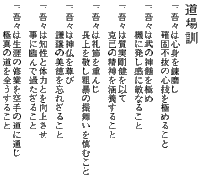 Last weekend the karate community suffered a profound loss. Sensei Diogenes Perez passed away, leaving a void that will not be easily or readily filled. Every Monday I attended class, he would be there. At every seminar he was a fixture. A promotion would not take place where he was not present.
Last weekend the karate community suffered a profound loss. Sensei Diogenes Perez passed away, leaving a void that will not be easily or readily filled. Every Monday I attended class, he would be there. At every seminar he was a fixture. A promotion would not take place where he was not present. Normally this would not be out of the ordinary, as a Sensei it was expected he be there. The only difference was that Sensei Diogenes could not longer train as actively as he once did. He had suffered a stroke years earlier and his hearing had been affected as well, requiring the use of a hearing aid. Even with what may be perceived as limitations, he made it a point to be at the Sunnyside school as often as there was class. I have fond recollections of conversations with him about weapons kata. He would often speak of how training was many years ago, stories which always put my own training in perspective. He was soft spoken and reserved, but when he spoke he spoke with conviction.
When teaching kata, in which I had the privilege to participate and watch, he was exacting and precise. Any sign of infirmity would vanish when he held a bo or a tonfa in his hands. At the last promotion he attended (a seven and half hour ordeal) he was vigilant for the entire promotion. Around 7am ( the promotion started at 12 midnight) he asked the Sensei conducting the promotion, when the students would be jumping the bo.
His embodiment of the spirit of karate is what will be remembered the most. He was never too busy, he always had a word of encouragement. When he trained he was a formidable and fierce warrior. As an instructor his classes where difficult, but he always expected his students to progress and surpass previous levels of skill.
He will be missed for his presence and his kind words.
The spirit he embodied as a karateka will continue to live on in the lives of those who he touched while he was here with us.
Sensei Orlando
strong spirit-strong mind-strong body








